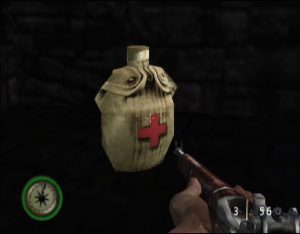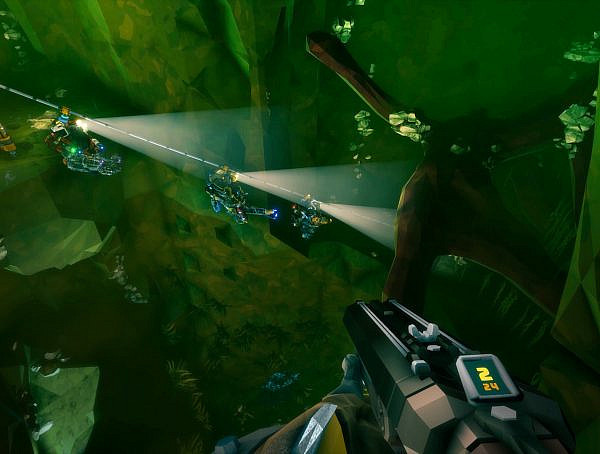Gamers do not see historical games as reliable sources of knowledge
Historical settings and events have always inspired game makers. But how do the players perceive historical games? Do they trust them to be valid sources of historical knowledge, or are they skeptical about games a source of knowledge? That is the question that Kevin O’Neill and Bill Feenstra try to answer in their article “Honestly I Would Stick with the Books”: Young Adults’ Ideas about a Videogame as a Source of Historical Knowledge”.
O’Neill and Feenstra state that there have been numerous studies on the trust people place on various sources of knowledge about the past, like books, documentaries, movies and web sites. Despite their popularity, however, video games have largely been ignored in these studies. This is particularly interesting when you consider that games set in the past (like many shooters set during World War II) have been popular and sold well. Scholars have attributed the popularity of these games to various reasons, including an existential longing to a time when life was “more real” and contained life-and-death struggles.
To address these questions of historical accuracy, O’Neill and Feenstra decided to study the experiences of young adults. The participants of the study were twelve students from a public university in Canada, ages ranging from 18 to 30. Before the study, the participants were asked about their gaming frequency and knowledge of history. O’Neill and Feenstra divided the people into following groups based on these answers:
| Player | Gamer | |
| Some postsecondary history | 2 | 4 |
| Only high school history | 1 | 5 |
Participants who played games several times a week were categorized as “gamers” and the ones who played a few times per month or less were categorized as players. Half of the participants had taken some university-level course on history, while the other half had only taken high school history courses.
O’Neill and Feenstra decided to use the first-person shooter Medal of Honor: Frontline (EA Games, 2002). They chose a first-person shooter over historical strategy games like Civilization because of the approachability of FPS-games: they require less preparation and initial learning than strategy games. Out of all possible historical shooters, Medal of Honor: Frontline (MoHF) was chosen because of the popularity of the series, resulting in people seeing it as more trustworthy as a source of knowledge. The D-Day level of the game was specifically chosen because it is a historical setting familiar to most people. It also offers the possibility for participants to develop an empathetic understanding of history.
The participants were invited one at a time to a research lab, where they played MoHF, and were interviewed after playing. Each session (gameplay and interview combined) took between 1-1,5 hours. At the start of each session, the participant was briefly introduced to MoHF by a researcher, and the participants played between 35-45 minutes, followed by an interview of about the same length. In their questions, the researchers asked the participants what they considered realistic or unrealistic, and how they saw the game as an opportunity to learn about history.
When participants were asked if MoHF taught them anything about history, all participants initially responded “no” or “not really”. Despite this, a quarter of the participants felt like that they could have learned something if they had been allowed to progress further into the game. It is also possible that the participants gained some tacit knowledge (knowledge that is difficult to express to another person through speech or writing) from their experience. It also seems that the people with the least amount of knowledge about D-Day were the most suspicious of the game’s historical realism. O’Neill and Feenstra list some the factors that probably factored into this skepticism: first of all the game is a commercial product, aiming to make a profit. This means that the entertainment value of the game is seen as more important that historical accuracy. Many participants also pointed out the health system of the game (picking up a medkit or a medical canteen instantly heals the player character) as historically unrealistic.

The healing items of MoHF were often pointed out as unrealistic
Picture taken from Mobygames http://www.mobygames.com/game/xbox/medal-of-honor-frontline/screenshots/gameShotId,173021/
In the light of the study, it seems quite clear that people do not seem to value games as a source of historical knowledge: People rank games at a very low position in the hierarchy of historical knowledge. The biggest issues that the participants seemed to have are the commercial nature of games and favoring gameplay over historical accuracy. This is best summarized by the comment of one of the participants: “Honestly, I would stick with the books. The games can alter anything, but you cannot alter history”. However, one should keep in mind that this was a single study with only a few participants, and thus overall generalizations cannot be made based on the study alone.
Key Information:
Original Article: “Honestly, I Would Stick with the Books”: Young Adults’ Ideas about a Videogame as a Source of Historical Knowledge
Authors: Kevin O’Neill and Bill Feenstra
Published: Game Studies, volume 16, issue 2, December 2016
Original article accessible from http://gamestudies.org/1602/articles/oneilfeenstra
You might also like
More from Game Research Highlights
How do you want to do this? – A look into the therapeutic uses of role-playing games
Can playing RPGs contribute positively to your wellbeing? A recent study aims to find out how RPGs are being used …
Eldritch horrors and tentacles – Defining what “Lovecraftian” is in games
H.P. Lovecrafts legacy lives today in the shared world of Cthulhu Mythos and its iconic monsters. Prema Arasu defines the …
Are Souls Games the Contemporary Myths?
Dom Ford’s Approaching FromSoftware’s Souls Games as Myth reveals the Souls series as a modern mythology where gods fall, desires …















